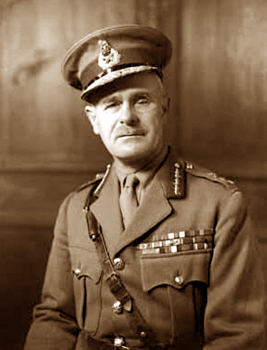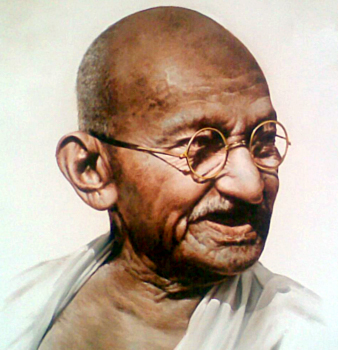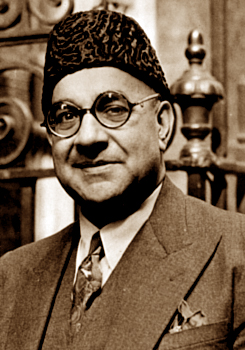 The talk between Gandhi and Jinnah regarding separation of India was a complete breakdown. After the failure of the talks Lord Wavell wanted His Majesty`s Government to intervene to solve the problem of India. Moreover, Lord Wavell decided to hold a conference of Governors in August 1944. During the conference, the political situation of India was taken up. The issues regarding elections to be held at the Centre and in the provinces were also discussed. Furthermore, Lord Wavell proceeded with the assembling of another small conference of the principal Indian leaders, including, Gandhiji and Jinnah, one representative each of the Congress and the Muslim League, of the Sikhs, Depressed Classes, non-Congress Hindus, non-League Muslims and Labour. The question of the composition of the transitional government was discussed in the conference. On the other hand, Amery`s Proposal was to set up a conference in India with the National Defence Council as its nucleus which would solve the administrative problems in the country.
The talk between Gandhi and Jinnah regarding separation of India was a complete breakdown. After the failure of the talks Lord Wavell wanted His Majesty`s Government to intervene to solve the problem of India. Moreover, Lord Wavell decided to hold a conference of Governors in August 1944. During the conference, the political situation of India was taken up. The issues regarding elections to be held at the Centre and in the provinces were also discussed. Furthermore, Lord Wavell proceeded with the assembling of another small conference of the principal Indian leaders, including, Gandhiji and Jinnah, one representative each of the Congress and the Muslim League, of the Sikhs, Depressed Classes, non-Congress Hindus, non-League Muslims and Labour. The question of the composition of the transitional government was discussed in the conference. On the other hand, Amery`s Proposal was to set up a conference in India with the National Defence Council as its nucleus which would solve the administrative problems in the country.
The Viceroy discussed matters in the small conference regarding the period after the settlement of the new transitional government. The Viceroy would encourage it to prepare and communicate to His Majesty`s Government proposals for the establishment of the constitution and treaty-making body. But while communicating his plan to the Secretary of State the Viceroy admitted that there were obvious difficulties and risks. In addition to that, the Secretary of State also identified the problems underlying the Viceroy`s proposals. He saw in them inherent practical difficulties. According to him, a prior agreement between the political parties with regard to the constitutional future, there was bound to be such tension within the Executive Council.
During this time, Amery`s proposal of an alternative plan came to the forefront. According to him, the Viceroy might set up a conference of less unbalanced and incompatible elements in Indian polity. This should be set up with the purpose of discussing the basis of a future constitution for India. The National Defence Council would be the nucleus of the conference which already included representatives of the Princes. This body could be reinforced by the premiers of provinces, elder statesmen, representatives of the Depressed Classes and Labour, and representatives of the Fighting Services, including those of the Indian States. Moreover, a small committee might also be selected from within it to concentrate on planning. The Congress and the League would be represented on the elected body.
 The Secretary of State thought that this plan would help in avoiding the serious administrative difficulties inherent in the Viceroy`s proposals during the critical war period. The Congress and the Muslim League would confront each other and dominate the discussions with their conflicting differences. Amery put forth the idea that the British Government ought to declare that they recognised India as a country enjoying the full freedom of status. In addition to that the Parliament in England would have no power to legislate for Indian affairs except at the request of an Indian Government. However, according to Lord Wavell`s view, Amery`s proposal of the alternative plan was quite unfeasible. Thus, Amery was unable to translate his ideas into practice. During the time of Amery`s proposal, there was newer approach in the political field. After the breakdown of the Gandhi-Jinnah talks a bitter controversy started among the Hindu and Muslim extremists over the Pakistan issue. Sir Tej Bahadur Sapru was quite concerned on the deteriorating communal situation of the country. A proposal was forwarded by Sapru, which stated that Gandhiji should call a National Convention.
The Secretary of State thought that this plan would help in avoiding the serious administrative difficulties inherent in the Viceroy`s proposals during the critical war period. The Congress and the Muslim League would confront each other and dominate the discussions with their conflicting differences. Amery put forth the idea that the British Government ought to declare that they recognised India as a country enjoying the full freedom of status. In addition to that the Parliament in England would have no power to legislate for Indian affairs except at the request of an Indian Government. However, according to Lord Wavell`s view, Amery`s proposal of the alternative plan was quite unfeasible. Thus, Amery was unable to translate his ideas into practice. During the time of Amery`s proposal, there was newer approach in the political field. After the breakdown of the Gandhi-Jinnah talks a bitter controversy started among the Hindu and Muslim extremists over the Pakistan issue. Sir Tej Bahadur Sapru was quite concerned on the deteriorating communal situation of the country. A proposal was forwarded by Sapru, which stated that Gandhiji should call a National Convention.
 In addition to that Sir Tej Bahadur suggested to Gandhiji that the Standing Committee of the Non-party Conference should set up a committee and prescribe for it certain duties. This committee would not bring about a settlement but understand the point of view of each party and to act as a sort of conciliation board by establishing contacts with the leaders of all parties. Gandhiji accepted the suggestion, but pointed out that members of the committee would not belong to the Congress, the League, the Mahasabha, or any of the recognized parties. This Standing Committee of the Non-party Conference met on 19 November 1944, and decided to set up a committee which would examine the whole communal and minorities question from a constitutional and political point of view. The Viceroy thus urged on the Secretary of State that his proposals should be considered by the Cabinet, even though action might have to be delayed pending the result of the Sapru Committee`s discussions. Sir Tej Bahadur Sapru announced the names of the members of his ` Conciliation Committee` on 3rd December.
In addition to that Sir Tej Bahadur suggested to Gandhiji that the Standing Committee of the Non-party Conference should set up a committee and prescribe for it certain duties. This committee would not bring about a settlement but understand the point of view of each party and to act as a sort of conciliation board by establishing contacts with the leaders of all parties. Gandhiji accepted the suggestion, but pointed out that members of the committee would not belong to the Congress, the League, the Mahasabha, or any of the recognized parties. This Standing Committee of the Non-party Conference met on 19 November 1944, and decided to set up a committee which would examine the whole communal and minorities question from a constitutional and political point of view. The Viceroy thus urged on the Secretary of State that his proposals should be considered by the Cabinet, even though action might have to be delayed pending the result of the Sapru Committee`s discussions. Sir Tej Bahadur Sapru announced the names of the members of his ` Conciliation Committee` on 3rd December.
The Viceroy suggested in the annual address to the Associated Chambers of Commerce in Calcutta in December 1944 that the condition of political problem in the country needs further attention apart from quit India movement. In the year 1945 Bhulabhai Desai had been working in close co-operation with Liaqat Ali Khan, the real leader of the Muslim League Party in the legislature. Thus a Desai- Liaqat Ali Pact was formed which stated that the interim Government would work within the present constitution. In the provinces, the existing ministries would not be interfered with, though there might be adjustments based on party agreements with which His Majesty`s Government would not be concerned.
The Viceroy did not agree with the Sapru Committee and its recommendations were published shortly after Lord Wavell`s departure for London. The main features included were that a national government should replace the present Executive Council at the Centre; that in the provinces the Congress ministries should resume office but with an admixture of non-Congress parties; that in the constitution-making body, representation of Hindus (excluding Scheduled Castes) and Muslims should be equal; that similar parity in the central Assembly should be conditional on Muslims agreeing to joint electorates with reservation of seats instead of separate electorates; that no decision of the constitution-making body should be valid unless it was supported by three-fourths of the members present and voting, and that His Majesty`s Government, while accepting the decisions so made, should supplement them by its own awards where the requisite majority was not obtained The Committee also rejected the Pakistan idea.
The moment Lord Wavell reached London he began his discussions with the Secretary of State and the India Committee immediately. The plan put forth by the Viceroy for a conference was generally accepted. The general plan was that the leaders of the two main parties Congress and Muslim League and of other parties as well, should be invited. The members of the Congress Working Committee who were detained had been released on the insistence of Lord Wavell.



















